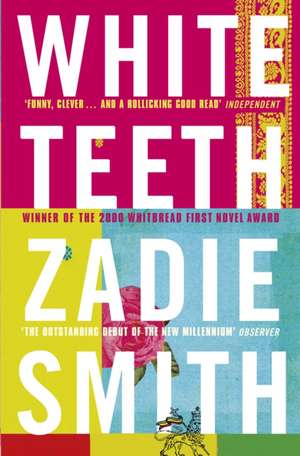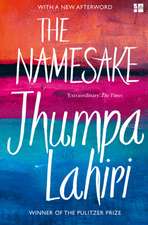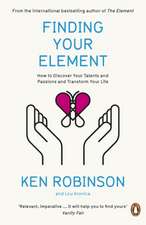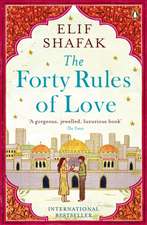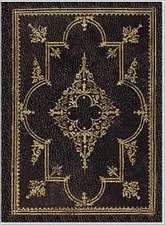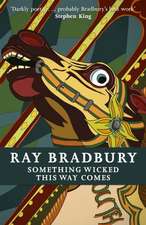White Teeth: Waterstones Reading the 21st Century
Autor Zadie Smithen Limba Engleză Paperback – 29 noi 2000
One of the most talked about fictional débuts of ever,White Teethis a funny, generous, big-hearted novel, adored by critics and readers alike. Dealing - among many other things - with friendship, love, war, three cultures and three families over three generations, one brown mouse, and the tricky way the past has of coming back and biting you on the ankle, it is a life-affirming, riotous must-read of a book.
'Funny, clever ... and a rollicking good read'Independent
'An astonishingly assured début, funny and serious ... I was delighted' Salman Rushdie
'The almost preposterous talent was clear from the first pages' Julian Barnes,Guardian
'Quirky, sassy and wise ... a big, splashy, populous production reminiscent of books by Dickens and Salman Rushdie ... demonstrates both an instinctive storytelling talent and a fully fashioned voice that's street-smart and learned, sassy and philosophical all at the same time'New York Times
'Smith writes like an old hand, and, sometimes, like a dream'New Yorker
'Outstanding ... A strikingly clever and funny book with a passion for ideas, for language and for the rich tragic-comedy of life'Sunday Telegraph
'Do believe the hype'The Times
'Relentlessly funny ... idiosyncratic, and deeply felt'Guardian
Zadie Smith was born in north-west London in 1975. Her debut novel,White Teeth, won the Whitbread First Novel Award,theGuardianFirst Book Award, the James Tait Black Memorial Prize for Fiction, and the Commonwealth Writers' First Book Prize, and was included inTIME 100 Best English-language Novels from 1923 to 2005. Her second novel,On Beauty, was shortlisted for the Man Booker Prize and won the Orange Prize for Fiction. She has written two further novels,The Autograph ManandNW, a collection of essaysChanging My Mind, and also edited short story anthologyThe Book of Other People. Zadie Smith was chosen byGrantaas one of its twenty best young British novelists in 2003, and as well as toGrantahas contributed writing to theNew Yorkerand theGuardian.
Zadie Smith's new novel,NW, is available from September 2012.
| Toate formatele și edițiile | Preț | Express |
|---|---|---|
| Paperback (4) | 55.00 lei 21-33 zile | +22.17 lei 6-12 zile |
| Penguin Books – 31 mai 2017 | 55.00 lei 21-33 zile | +22.17 lei 6-12 zile |
| Penguin Books – 29 noi 2000 | 58.40 lei 3-5 săpt. | +12.73 lei 6-12 zile |
| Penguin Books – 24 ian 2001 | 65.56 lei 3-5 săpt. | +16.56 lei 6-12 zile |
| Vintage Books USA – 31 mai 2001 | 101.06 lei 3-5 săpt. |
Din seria Waterstones Reading the 21st Century
-
 Preț: 74.85 lei
Preț: 74.85 lei - 15%
 Preț: 81.47 lei
Preț: 81.47 lei -
 Preț: 38.86 lei
Preț: 38.86 lei - 14%
 Preț: 56.55 lei
Preț: 56.55 lei - 22%
 Preț: 49.95 lei
Preț: 49.95 lei - 6%
 Preț: 55.47 lei
Preț: 55.47 lei - 23%
 Preț: 49.51 lei
Preț: 49.51 lei - 19%
 Preț: 69.83 lei
Preț: 69.83 lei - 27%
 Preț: 51.02 lei
Preț: 51.02 lei - 22%
 Preț: 55.36 lei
Preț: 55.36 lei - 15%
 Preț: 59.94 lei
Preț: 59.94 lei - 15%
 Preț: 109.57 lei
Preț: 109.57 lei -
 Preț: 71.62 lei
Preț: 71.62 lei - 24%
 Preț: 53.43 lei
Preț: 53.43 lei - 22%
 Preț: 50.40 lei
Preț: 50.40 lei - 30%
 Preț: 49.75 lei
Preț: 49.75 lei - 20%
 Preț: 57.69 lei
Preț: 57.69 lei - 21%
 Preț: 56.42 lei
Preț: 56.42 lei - 33%
 Preț: 34.87 lei
Preț: 34.87 lei - 22%
 Preț: 50.99 lei
Preț: 50.99 lei - 21%
 Preț: 67.38 lei
Preț: 67.38 lei - 22%
 Preț: 56.07 lei
Preț: 56.07 lei - 17%
 Preț: 41.51 lei
Preț: 41.51 lei - 24%
 Preț: 48.23 lei
Preț: 48.23 lei -
 Preț: 70.07 lei
Preț: 70.07 lei -
 Preț: 69.20 lei
Preț: 69.20 lei - 16%
 Preț: 47.67 lei
Preț: 47.67 lei - 14%
 Preț: 56.24 lei
Preț: 56.24 lei -
 Preț: 67.10 lei
Preț: 67.10 lei -
 Preț: 69.07 lei
Preț: 69.07 lei - 22%
 Preț: 50.81 lei
Preț: 50.81 lei - 16%
 Preț: 58.59 lei
Preț: 58.59 lei -
 Preț: 58.49 lei
Preț: 58.49 lei - 41%
 Preț: 43.05 lei
Preț: 43.05 lei -
 Preț: 56.83 lei
Preț: 56.83 lei -
 Preț: 82.33 lei
Preț: 82.33 lei - 23%
 Preț: 44.35 lei
Preț: 44.35 lei -
 Preț: 51.44 lei
Preț: 51.44 lei -
 Preț: 57.14 lei
Preț: 57.14 lei -
 Preț: 70.22 lei
Preț: 70.22 lei - 25%
 Preț: 47.53 lei
Preț: 47.53 lei - 20%
 Preț: 41.86 lei
Preț: 41.86 lei - 22%
 Preț: 55.98 lei
Preț: 55.98 lei - 23%
 Preț: 49.60 lei
Preț: 49.60 lei - 23%
 Preț: 39.67 lei
Preț: 39.67 lei - 21%
 Preț: 56.51 lei
Preț: 56.51 lei -
 Preț: 73.70 lei
Preț: 73.70 lei - 23%
 Preț: 53.77 lei
Preț: 53.77 lei - 45%
 Preț: 39.19 lei
Preț: 39.19 lei -
 Preț: 69.72 lei
Preț: 69.72 lei
Preț: 58.40 lei
Nou
11.17€ • 11.67$ • 9.25£
Carte disponibilă
Livrare economică 14-28 martie
Livrare express 27 februarie-05 martie pentru 22.72 lei
Specificații
ISBN-10: 0140297782
Pagini: 560
Dimensiuni: 111 x 181 x 33 mm
Greutate: 0.31 kg
Editura: Penguin Books
Colecția Penguin
Seria Waterstones Reading the 21st Century
Locul publicării:London, United Kingdom
Notă biografică
Zadie Smith is the author of the novels White Teeth, The Autograph Man, On Beauty, NW and Swing Time, as well as a novella, The Embassy of Cambodia, and a collection of essays, Changing My Mind. She is also the editor of The Book of Other People. Zadie was elected a fellow of the Royal Society of Literature in 2002, and was listed as one of Granta's 20 Best Young British Novelists in 2003 and again in 2013. White Teeth won multiple literary awards including the James Tait Black Memorial Prize, the Whitbread First Novel Award and the Guardian First Book Award. On Beauty was shortlisted for the Man Booker Prize and won the Orange Prize for Fiction, and NW was shortlisted for the Baileys Women's Prize for Fiction. Zadie Smith is currently a tenured professor of fiction at New York University and a Member of the American Academy of Arts and Letters.
Descriere
Published in the first month of the first year of the new century, Zadie Smith's debut novel White Teeth - winner of the Guardian First Book Award and the Whitbread First Novel Award - was an immediate bestseller and stunningly acclaimed.
One of the most talked about fictional débuts of ever, White Teeth is a funny, generous, big-hearted novel, adored by critics and readers alike. Dealing - among many other things - with friendship, love, war, three cultures and three families over three generations, one brown mouse, and the tricky way the past has of coming back and biting you on the ankle, it is a life-affirming, riotous must-read of a book.
'Funny, clever ... and a rollicking good read' Independent
'An astonishingly assured début, funny and serious ... I was delighted' Salman Rushdie
'The almost preposterous talent was clear from the first pages' Julian Barnes, Guardian
'Quirky, sassy and wise ... a big, splashy, populous production reminiscent of books by Dickens and Salman Rushdie ... demonstrates both an instinctive storytelling talent and a fully fashioned voice that's street-smart and learned, sassy and philosophical all at the same time' New York Times
'Smith writes like an old hand, and, sometimes, like a dream' New Yorker
'Outstanding ... A strikingly clever and funny book with a passion for ideas, for language and for the rich tragic-comedy of life' Sunday Telegraph
'Do believe the hype' The Times
'Relentlessly funny ... idiosyncratic, and deeply felt' Guardian
Zadie Smith was born in north-west London in 1975. Her debut novel, White Teeth, won the Whitbread First Novel Award, the Guardian First Book Award, the James Tait Black Memorial Prize for Fiction, and the Commonwealth Writers' First Book Prize, and was included in TIME 100 Best English-language Novels from 1923 to 2005. Her second novel, On Beauty, was shortlisted for the Man Booker Prize and won the Orange Prize for Fiction. She has written two further novels, The Autograph Man and NW, a collection of essays Changing My Mind, and also edited short story anthology The Book of Other People. Zadie Smith was chosen by Granta as one of its twenty best young British novelists in 2003, and as well as to Granta has contributed writing to the New Yorker and the Guardian.
Zadie Smith's new novel, NW, is available from September 2012.
Recenzii
“Brilliant…. Smith is a master at detail…a postmodern Charles Dickens…[Smith's] rich storytelling and wicked wit are suited to the sights and smells of the world that England has inherited.”–The Washington Post
“[A] vibrant, rollicking first novel about race and idenity…[Smith's] prickly wit is affectionate and poignant.”–People
“[A] dazzling intergenerational first novel…wonderfully inventive…playful yet unaffected, mongrel yet cohesive, profound yet funny, vernacular yet lyrical. ”–Los Angeles Times
“[A] marvel of a debut novel. . .Reminscent of both Salman Rushdie and John Irving, White Teeth is a comic, canny, sprawling tale, adeptly held together by Smith's literary sleight of hand.”–Entertainment Weekly
“A magnificent and audacious novel, jampacked with memorable characters and challenging ideas.”–The Atlanta Journal & Constitution
"Ambitious, earnest and irreverent. . . Smith has a real talent for comedy and a fond eye for human foibles."–The Wall Street Journal
“Wonderful…. Zadie Smith…possesses a more than ordinary share of talent.”–USA Today
"Smith has an astonishing intellect. She writes sharp dialogue for every age and race— and she's funny as hell.”–Newsweek
“[White Teeth] is, like the London it portrays, a restless hybrid of voices, tones, and textures…with a raucous energy and confidence.”–The New York Times Book Review
"Fresh…spirited…this extravagant novel bursts with optimism about people, about language, and perhaps, above all, about novels and the joy, indeed the impertinence, of writing one.”–The Philadelphia Inquirer
“Blissfully confident, wide-ranging and funny from the get-go, White Teeth…promises–and delivers–a wildly inventive journey into a fresh imagination.”–Rocky Mountain News
“Brilliant…. Smith is a master at detail…. Like a postmodern Dickens, she has a flair for features, dress, dialogue, accents and human frailty.”–The Miami Herald
“It’s a treat to watch an immensely gifted young writer performing, for the very first time, such an admirably audacious and ambitious juggling act.”–Elle
“Absolutely delicious…. Smith’s voice is a perfect balance of tragedy and comedy.”–The Tampa Tribune and Times
“Gently observant and generous in its judgments…. Filled with vibrant life.”–The San Diego Union—Tribune
“Brilliant…. Bubbles and pops in its imaginative intensity.”–The Baltimore Sun
Extras
Early in the morning, late in the century, Cricklewood Broadway. At 06.27 hours on 1 January 1975, Alfred Archibald Jones was dressed in corduroy and sat in a fume-filled Cavalier Musketeer Estate face down on the steering wheel, hoping the judgement would not be too heavy upon him. He lay forward in a prostrate cross, jaw slack, arms splayed either side like some fallen angel; scrunched up in each fist he held his army service medals (left) and his marriage license (right), for he had decided to take his mistakes with him. A little green light flashed in his eye, signaling a right turn he had resolved never to make. He was resigned to it. He was prepared for it. He had flipped a coin and stood staunchly by its conclusions. This was a decided-upon suicide. In fact it was a New Year's resolution.
But even as his breathing became spasmodic and his lights dimmed, Archie was aware that Cricklewood Broadway would seem a strange choice. Strange to the first person to notice his slumped figure through the windscreen, strange to the policemen who would file the report, to the local journalist called upon to write fifty words, to the next of kin who would read them. Squeezed between an almighty concrete cinema complex at one end and a giant intersection at the other, Cricklewood was no kind of place. It was not a place a man came to die. It was a place a man came in order to go other places via the A41. But Archie Jones didn't want to die in some pleasant, distant woodland, or on a cliff edge fringed with delicate heather. The way Archie saw it, country people should die in the country and city people should die in the city. Only proper. In death as he was in life and all that. It made sense that Archibald should die on this nasty urban street where he had ended up, living alone at the age of forty-seven, in a one-bedroom flat above a deserted chip shop. He wasn't the type to make elaborate plans - suicide notes and funeral instructions - he wasn't the type for anything fancy. All he asked for was a bit of silence, a bit of shush so he could concentrate. He wanted it to be perfectly quiet and still, like the inside of an empty confessional box or the moment in the brain between thought and speech. He wanted to do it before the shops opened.
Overhead, a gang of the local flying vermin took off from some unseen perch, swooped, and seemed to be zeroing in on Archie's car roof - only to perform, at the last moment, an impressive U-turn, moving as one with the elegance of a curve ball and landing on the Hussein-Ishmael, a celebrated halal butchers. Archie was too far gone to make a big noise about it, but he watched them with a warm internal smile as they deposited their load, streaking white walls purple. He watched them stretch their peering bird heads over the Hussein-Ishmael gutter; he watched them watch the slow and steady draining of blood from the dead things - chickens, cows, sheep - hanging on their hooks like coats around the shop. The Unlucky. These pigeons had an instinct for the Unlucky, and so they passed Archie by. For, though he did not know it, and despite the Hoover tube that lay on the passenger seat pumping from the exhaust pipe into his lungs, luck was with him that morning. The thinnest covering of luck was on him like fresh dew. Whilst he slipped in and out of consciousness, the position of the planets, the music of the spheres, the flap of a tiger-moth's diaphanous wings in Central Africa, and a whole bunch of other stuff that Makes Shit Happen had decided it was second-chance time for Archie. Somewhere, somehow, by somebody, it had been decided that he would live.
~
The Hussein-Ishmael was owned by Mo Hussein-Ishmael, a great bull of a man with hair that rose and fell in a quaff, then a ducktail. Mo believed that with pigeons you have to get to the root of the problem: not the excretions but the pigeon itself. The shit is not the shit (this was Mo's mantra); the pigeon is the shit. So the morning of Archie's almost-death began as every morning in the Hussein-Ishmael, with Mo resting his huge belly on the windowsill, leaning out and swinging a meat cleaver in an attempt to halt the flow of dribbling purple.
'Get out of it! Get away, you shit-making bastards! Yes! SIX!'
It was cricket, basically - the Englishman's game adapted by the immigrant, and six was the most pigeons you could get at one swipe.
'Varin!' said Mo, calling down to the street, holding the bloodied cleaver up in triumph. 'You're in to bat, my boy. Ready?'
Below him on the pavement stood Varin - a massively overweight Hindu boy on misjudged work experience from the school round the corner, looking up like a big dejected blob underneath Mo's question mark. It was Varin's job to struggle up a ladder and gather spliced bits of pigeon into a small Kwik Save carrier bag, tie the bag up, and dispose of it in the bins at the other end of the street.
'Come on, Mr. Fatty-man,' yelled one of Mo's kitchen staff, poking Varin up the arse with a broom as punctuation for each word. 'Get-your-fat-Ganesh-Hindu-backside-up-there-Elephant-Boy-and-bring-some-of-that-mashed-pigeon-stuff-with-you.'
Mo wiped the sweat off his forehead, snorted, and looked out over Cricklewood, surveying the discarded armchairs and strips of carpet, outdoor lounges for local drunks; the slot-machine emporiums, the greasy spoons and the minicabs - all covered in shit. One day, so Mo believed, Cricklewood and its residents would have cause to thank him for his daily massacre; one day no man, woman or child in the broadway would ever again have to mix one part detergent to four parts vinegar to clean up the crap that falls on the world. The shit is not the shit, he repeated solemnly, the pigeon is the shit. Mo was the only man in the community who truly understood. He was feeling really very Zen about this - very goodwill-to-all-men - until he spotted Archie's car.
'Arshad!'
A shifty-looking skinny guy with a handlebar moustache, dressed in four different shades of brown, came out of the shop, with blood on his palms.
'Arshad!' Mo barely restrained himself, stabbed his finger in the direction of the car. 'My boy, I'm going to ask you just once.'
'Yes, Abba?' said Arshad, shifting from foot to foot.
'What the hell is this? What is this doing here? I got delivery at 6.30. I got fifteen dead bovines turning up here at 6.30. I got to get it in the back. That's my job. You see? There's meat coming. So, I am perplexed--' Mo affected a look of innocent confusion. 'Because I thought this was clearly marked "Delivery Area".' He pointed to an aging wooden crate which bore the legend NO PARKINGS OF ANY VEHICLE ON ANY DAYS. Well?'
'I don't know, Abba.'
'You're my son, Arshad. I don't employ you not to know. I employ him not to know' - he reached out of the window and slapped Varin, who was negotiating the perilous gutter like a tightrope-walker, giving him a thorough cosh to the back of his head and almost knocking the boy off his perch -'I employ you to know things. To compute information. To bring into the light the great darkness of the creator's unexplainable universe.'
'Abba?'
'Find out what it's doing there and get rid of it.'
Mo disappeared from the window. A minute later Arshad returned with the explanation. 'Abba.'
Mo's head sprang back through the window like a malicious cuckoo from a Swiss clock.
'He's gassing himself, Abba.'
'What?'
Arshad shrugged. 'I shouted through the car window and told the guy to move on and he says, "I am gassing myself, leave me alone." Like that.'
'No one gasses himself on my property,' Mo snapped as he marched downstairs. 'We are not licensed.'
Once in the street, Mo advanced upon Archie's car, pulled out the towels that were sealing the gap in the driver's window, and pushed it down five inches with brute, bullish force.
'Do you hear that, mister? We're not licensed for suicides around here. This place halal. Kosher, understand? If you're going to die round here, my friend, I'm afraid you've got to be thoroughly bled first.'
Archie dragged his head off the steering wheel. And in the moment between focusing on the sweaty bulk of a brown-skinned Elvis and realizing that life was still his, he had a kind of epiphany. It occurred to him that, for the first time since his birth, Life had said Yes to Archie Jones. Not simply an 'OK' or 'You-might-as-well-carry-on-since-you've-started', but a resounding affirmative. Life wanted Archie. She had jealously grabbed him from the jaws of death, back to her bosom. Although he was not one of her better specimens, Life wanted Archie and Archie, much to his own surprise, wanted Life.
Frantically, he wound down both his windows and gasped for oxygen from the very depths of his lungs. In between gulps he thanked Mo profusely, tears streaming down his cheeks, his hands clinging on to Mo's apron.
'All right, all right,' said the butcher, freeing himself from Archie's fingers and brushing himself clean, 'move along now. I've got meat coming. I'm in the business of bleeding. Not counseling. You want Lonely Street. This Cricklewood Lane.'
Archie, still choking on thank yous, reversed, pulled out from the curb, and turned right.
~
Archie Jones attempted suicide because his wife Ophelia, a violet-eyed Italian with a faint moustache, had recently divorced him. But he had not spent New Year's morning gagging on the tube of a vacuum cleaner because he loved her. It was rather because he had lived with her for so long and had not loved her. Archie's marriage felt like buying a pair of shoes, taking them home and finding they don't fit. For the sake of appearances, he put up with them. And then, all of a sudden and after thirty years, the shoes picked themselves up and walked out of the house. She left. Thirty years.
As far as he remembered, just like everybody else they began well. The first spring of 1946, he had stumbled out of the darkness of war and into a Florentine coffee house, where he was served by a waitress truly like the sun: Ophelia Diagilo, dressed all in yellow, spreading warmth and the promise of sex as she passed him a frothy cappuccino. They walked into it blinkered as horses. She was not to know that women never stayed as daylight in Archie's life; that somewhere in him he didn't like them, he didn't trust them, and he was able to love them only if they wore haloes. No one told Archie that lurking in the Diagilo family tree were two hysteric aunts, an uncle who talked to aubergines and a cousin who wore his clothes back to front. So they got married and returned to England, where she realized very quickly her mistake, he drove her very quickly mad, and the halo was packed off to the attic to collect dust with the rest of the bric-a-brac and broken kitchen appliances that Archie promised one day to repair. Amongst that bric-a-brac was a Hoover.
On Boxing Day morning, six days before he parked outside Mo's halal butchers, Archie had returned to their semi-detached in Hendon in search of that Hoover. It was his fourth trip to the attic in so many days, ferrying out the odds and ends of a marriage to his new flat, and the Hoover was amongst the very last items he reclaimed - one of the most broken things, most ugly things, the things you demand out of sheer bloody-mindedness because you have lost the house. This is what divorce is: taking things you no longer want from people you no longer love.
'So you again,' said the Spanish home-help at the door, Santa-Maria or Maria-Santa or something. 'Meester Jones, what now? Kitchen sink, si?'
'Hoover,' said Archie, grimly. 'Vacuum.'
She cut her eyes at him and spat on the doormat inches from his shoes. 'Welcome, senor.'
The place had become a haven for people who hated him. Apart from the home-help, he had to contend with Ophelia's extended Italian family, her mental-health nurse, the woman from the council, and of course Ophelia herself, who was to be found in the kernel of this nuthouse, curled up in a foetal ball on the sofa, making lowing sounds into a bottle of Bailey's. It took him an hour and a quarter just to get through enemy lines - and for what? A perverse Hoover, discarded months earlier because it was determined to perform the opposite of every vacuum's objective: spewing out dust instead of sucking it in.
'Meester Jones, why do you come here when it make you so unhappy? Be reasonable. What can you want with it?' The home-help was following him up the attic stairs, armed with some kind of cleaning fluid: 'It's broken. You don't need this. See? See?' She plugged it into a socket and demonstrated the dead switch. Archie took the plug out and silently wound the cord round the Hoover. If it was broken, it was coming with him. All broken things were coming with him. He was going to fix every damn broken thing in this house, if only to show that he was good for something.
'You good for nothing!' Santa whoever chased him back down the stairs. 'Your wife is ill in her head, and this is all you can do!'
Archie hugged the Hoover to his chest and took it into the crowded living room, where, under several pairs of reproachful eyes, he got out his toolbox and started work on it.
'Look at him,' said one of the Italian grandmothers, the more glamorous one with the big scarves and fewer moles, 'he take everything, capisce? He take-a her mind, he take-a the blender, he take-a the old stereo - he take-a everything except the floorboards. It make-a you sick. . .'
The woman from the council, who even on dry days resembled a long-haired cat soaked to the skin, shook her skinny head in agreement. 'It's disgusting, you don't have to tell me, it's disgusting ... and naturally, we're the ones left to sort out the mess; it's muggins here who has to -'
Which was overlapped by the nurse: 'She can't stay here alone, can she ... now he's buggered off, poor woman ... she needs a proper home, she needs . . .'
I'm here, Archie felt like saying, I'm right here you know, I'm bloody right here. And it was my blender.
But he wasn't one for confrontation, Archie. He listened to them all for another fifteen minutes, mute as he tested the Hoover's suction against pieces of newspaper, until he was overcome by the sensation that Life was an enormous rucksack so impossibly heavy that, even though it meant losing everything, it was infinitely easier to leave all baggage here on the roadside and walk on into the blackness. You don't need the blender, Archie-boy, you don't need the Hoover. This stuff's all dead weight. Just lay down the rucksack, Arch, and join the happy campers in the sky. Was that wrong? To Archie - ex-wife and ex-wife's relatives in one ear, spluttering vacuum in the other - it just seemed that The End was unavoidably nigh. Nothing personal to God or whatever. It just felt like the end of the world. And he was going to need more than poor whisky, novelty crackers and a paltry box of Quality Street - all the strawberry ones already scoffed - to justify entering another annum.
Patiently he fixed the Hoover, and vacuumed the living room with a strange methodical finality, shoving the nozzle into the most difficult comers. Solemnly he flipped a coin (heads, life, tails, death) and felt nothing in particular when he found himself staring at the dancing lion. Quietly he detached the Hoover tube, put it in a suitcase, and left the house for the last time.
